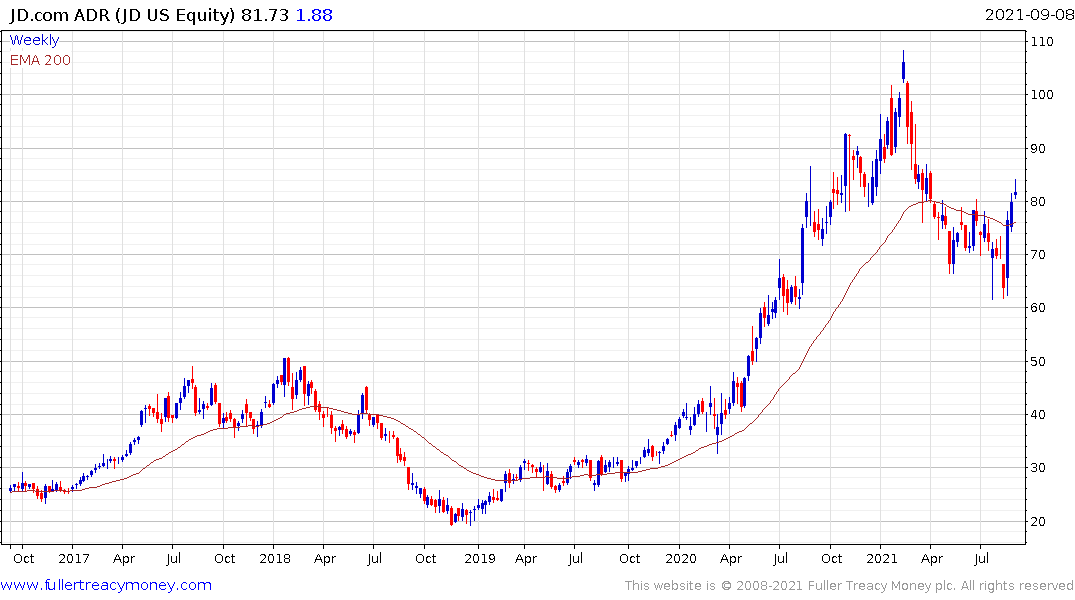China Lets Evergrande Reset Debt Terms to Ease Cash Crunch -
This article from Bloomberg may be of interest to subscribers. Here is a section:
The development suggests Evergrande has regulatory backing to negotiate with creditors on a piecemeal basis, as it tries to ease a cash crunch that has unnerved investors in China’s $12 trillion bond market. While the company’s main banks had discussed setting up a creditor committee as recently as last week to consolidate repayment decisions, lenders and regulators have decided to give Evergrande more time to solve its liquidity crisis before taking more drastic measures, people familiar with the matter said.
Evergrande’s complex web of obligations to banks, bondholders, suppliers and homeowners has become one of the biggest sources of financial risk in the world’s second-largest economy. While China’s government has publicly urged the company to solve its debt problems, officials have yet to spell out whether they would allow a major debt restructuring or bankruptcy. Speculation over Evergrande’s fate has fueled outsized swings in its shares and bonds, with the latter rising from record lows on Thursday.
Some lenders have indicated a willingness to be flexible on payment deadlines. Bloomberg reported last month that China Minsheng Banking Corp., China Zheshang Bank Co. and Shanghai Pudong Development Bank Co. had agreed to give Evergrande extensions on some project loans. Citic Trust, one of the developer’s biggest non-bank lenders, has given preliminary approval to a three-month extension on loans that were due in August, a person familiar with the matter said.
China Evergrande might yet default, but it is increasingly likely that the measures currently being taken will not result is a systemic crisis for the financial sector. That’s not a statement about the stock market since many of the most troubled property developer stocks carry low weightings but it should help to lend some confidence to investors worried about the trajectory of the economic recovery.

Tencent pulled back sharply today. The scale of the measures proposed to control the amount of time children spend playing games represent a significant hit to the company’s primary cash generation model. That weighed on the Hang Seng.,

Meanwhile, JD.com is firming from the upper side of its underlying range.

Pinduoduo has put in a least a near-term low as its tests the region of the trend mean.
 Alibaba remains under accumulation by large hedge funds and may be putting in another short-term higher reaction lows today.
Alibaba remains under accumulation by large hedge funds and may be putting in another short-term higher reaction lows today.
Veteran Chinese investors tend to look at the periodic measures to control property prices as a continuum. The current efforts to promote “common prosperity” bump up against the reality of much slower growth if the proploerty market is penalised. Those two realities are mutually incompatible and growth has always won out. The question therefore is whether this time is truly different. Has the Xi administration decided that popping the property bubble is necessary to achieve the Party’s long-term goals? The efforts to help Evergrande suggest the answer is no.
Back to top

